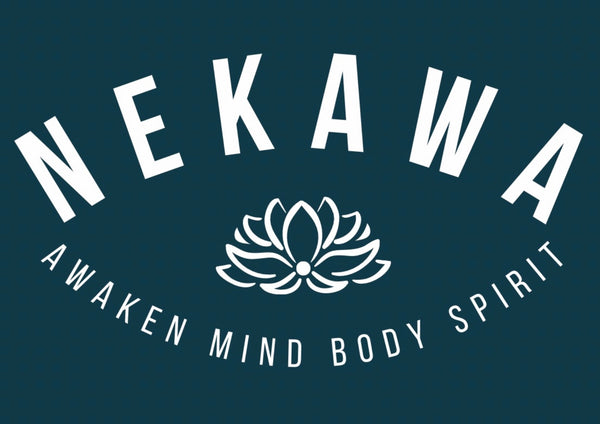
The Two Faces of “Selfish”: Why Looking After Yourself Isn’t a Bad Thing
Share
We’re taught early on that being selfish is wrong - that putting ourselves first is something to feel guilty about. But I’ve come to see that there’s a deeper truth hiding behind that word. Not all selfishness is the same. And not all of it is harmful.
In my work at NEKAWA, I often meet people who have lost the connection with themselves. They have spent years trying to be everything to everyone, putting their own needs aside - sometimes to the point where they no longer recognise what they feel anymore.
And yet, when they start reclaiming that connection - recognising their own emotional needs, setting boundaries and choosing what feels true, they allow themselves to say “I matter too”. In this space something beautiful happens, the nervous system begins to exhale and the healing begins.
There is a profound difference between ‘being selfish’ from a heartfelt self-respecting way and ‘being selfish’ by reacting from a place of fear or ego. Let’s take a closer look.

Heartfelt “Selfishness”: An Act of Alignment
Self-Respect, Not Self-Centredness
There’s a kind of “selfishness” that’s actually self-honouring - a gentle and grounded way of tending to your emotional needs. It’s not about shutting others out; it’s about staying connected to yourself. So, when you act from the heart, tending to your own emotions or taking time to process what you’re feeling, that’s NOT selfish in a negative sense. It’s self-awareness. It’s care. It’s a quiet kind of wisdom that says:
💜 “I need to pause and come back to myself.” This is the moment you choose rest instead of forcing yourself to push through.
💜 “This doesn’t feel right in my body.” The moment you feel something stir in your chest and pause long enough to listen.
💜 “I’m not available for that right now, and that’s okay.” The moment you say no without needing to justify it.
This is the kind of “selfishness” that restores balance - not just within you, but in the relationships around you. It comes from a place of clarity, not conflict. It doesn’t push others away; it simply honours your own space. It’s emotional intelligence. It’s the act of checking in, not checking out.
It’s when you stop betraying yourself for the sake of approval.
It’s the moment when you choose rest over obligation.
It’s the moment you step away to breathe, reflect, and return whole.
And it’s when you start recognising and choosing what feels true in your body.

Ego-Driven Selfishness: A Protection, Not Always Malice
Now, let’s talk about the other kind - the kind people often criticise, the thing is, even this type of selfishness is rarely rooted in malice. More often than not, it’s a protective mechanism.
It’s the mind stepping in to say, “This is how we stay safe.”
It stems from ‘fear’, the fear of not being seen, the fear of not being good enough, the fear of being wrong, the fear of being vulnerable.
It’s the internal dialogue that rationalises self-preservation:
“If I let people in, I could get hurt.”
“If I give too much, I’ll be left with nothing.”
“Better I look after me - no one else will.”
This is head-over-heart decision-making. It doesn’t mean the person is cold or unkind. It usually means they’ve had to rely on survival strategies that now feel like common sense - even if those strategies are quietly eroding their ability to connect.
💔 It’s not about arrogance - it’s about protection and sometimes over protection of others.
💔 It’s not that they don’t care - it’s that they’ve learned to care by keeping their distance.
Unfortunately, it is this type of behaviour that can:
💔 Close others out to stay in control
💔 Choose superiority over connection
💔 React with blame or defensiveness
💔 Put personal image ahead of mutual respect
It may look confident on the surface, but underneath it’s often about self-protection. It builds walls instead of bridges. It says, “I can’t afford to be open, so I’ll stay guarded.”
This is the moment when the heart tightens, and decisions are made to preserve pride instead of peace.
There’s no judgement in this. I just invite you to notice:
“Is this a true expression of who I am, or is it a shield I no longer need?”
”Am I tired of being on the defence? How long can I sustain this?”
”Am I too scared to bring my barriers down and change?”

How Do You Know the Difference?
Here are a few questions I often encourage clients to reflect on:
❤️🩹 Am I responding from emotional clarity, or reacting from a place of fear / the thinking that I ought to?
❤️🩹 Does this choice feel peaceful, even if it’s difficult?
❤️🩹 Am I being true to myself without closing off to others?
❤️🩹 Does this decision feel like a full-body yes - or a defensive move?
❤️🩹 Am I protecting my energy, or am I avoiding something uncomfortable?
❤️🩹 Is this boundary rooted in clarity, or fear of vulnerability?
Heartfelt decisions often feel calm, clear, and grounded - even when they’re hard.
Ego-driven ones tend to carry tension: urgency, resentment, disconnection. Frequently what annoys you in others are the areas that need healing in you.
One honours the nervous system.
The other keeps it locked in survival mode.
Reclaiming Your Right to Care for Yourself
I believe it’s time to soften our relationship with the word “selfish.”
If honouring your nervous system is selfish - so be it.
❤️ Choosing to care for your emotional wellbeing isn’t selfish - it’s necessary.
❤️ Saying no when your body says no isn’t selfish - it’s honest.
❤️ Taking time to pause, realign, or protect your peace isn’t selfish - it’s wise.

At NEKAWA, I work with people every day who are learning to listen to that inner voice again, or for some - for the first time. To recognise when the body whispers before it screams. To tune into what’s really needed - not just to survive, but to thrive. And if protecting yourself through old survival strategies is your current way of coping - there is NO shame in that… we all adapt the best way we know how.
But with awareness comes choice. And with choice comes the chance to move out of the mind and back into the body - back into peace, softness, and inner steadiness.
A Quick Visual: Two Sides of Selfishness
| Heartfelt Self-Honouring | Ego-Driven Self-Protection |
|---|---|
| Rooted in self-awareness | Rooted in past wounds/fear |
| Maintains open-hearted boundaries | Sets rigid walls for safety |
| Brings calm and alignment | Creates emotional distance |
| Encourages connection | Prioritises control and image |
| Supports wellbeing and growth | Avoids vulnerability |
| Is easy to maintain | Ultimately exhausts the body and psyche |
In summary
Healing doesn’t ask you to be perfect. It asks you to be honest. It invites you to ask, “What do I need?” And then - if only in small steps - to let that answer guide you home.
So here’s the reminder you might need today:
Tending to your own needs is not something you must apologise for.
It’s an act of emotional maturity. A quiet reclaiming of your inner authority.
It’s the first step in healing - and it begins with listening to yourself.

